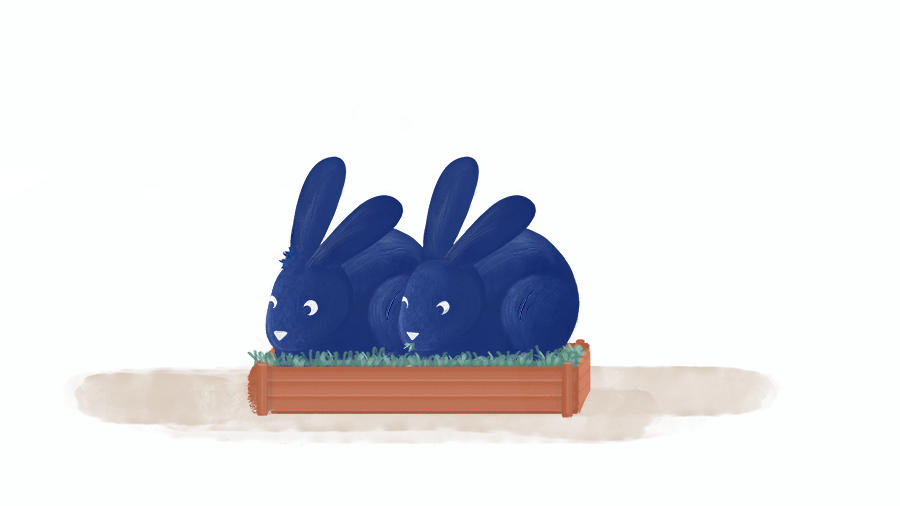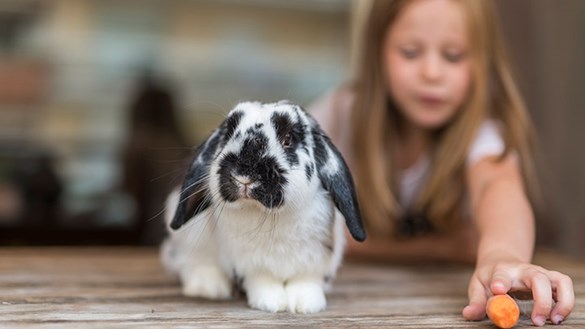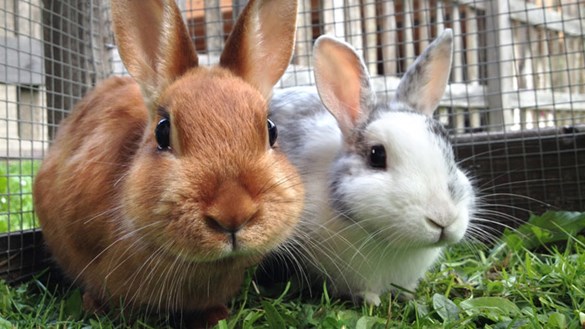Rabbit Neutering and Spaying
Neutering your rabbit is a simple way to help your rabbit live a longer and healthier life by preventing unwanted litters and cutting the risks of certain illnesses and cancers. At Medivet, we’re here to give you all the facts so you can make the best choice for your pet. Ready to learn more? Speak to your local practice and let us guide you through the next steps of your rabbit’s care.
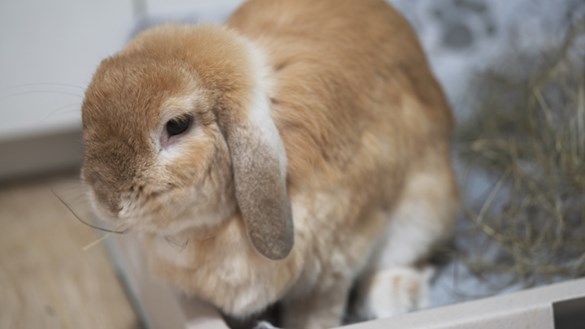
Key Takeaways
- Rabbit neutering is a surgical procedure that involves the removal of reproductive organs to prevent unwanted pregnancies and improve health.
- Female rabbits undergo spaying, which removes the ovaries and uterus, making them sterile immediately after surgery.
- Male rabbits are castrated by removing the testicles but can remain fertile for up to six weeks post-operation, so separation from unneutered females during this time is essential.
- Neutering may reduce aggressive behaviour, territorial spraying, and false pregnancies, making rabbits calmer and easier to bond with other rabbits.
- Spaying female rabbits significantly lowers the risk of uterine cancer and other reproductive diseases, contributing to a healthier life.
- Proper post-operative care, including monitoring, pain relief, and limiting activity, is crucial for a smooth recovery.
- Responsible pet ownership includes neutering your rabbit to prevent unwanted litters and promote their welfare as sociable animals.
- Always consult your vet for the best timing and care tailored to your rabbit’s individual health needs.
What is neutering?
Neutering is a surgical procedure carried out by a vet to stop your rabbit from breeding. For female rabbits it’s called spaying and the ovaries and uterus are removed, preventing them from getting pregnant. In male rabbits it’s referred to as castration and the testicles are removed. This prevents them from being able to father babies.
When to neuter a rabbit?
The best time to neuter a rabbit will depend on their general health and your vet will advise you. All rabbits are different, so they’ll look at each case individually. As a guide these are the common times to neuter a rabbit:
- Male Rabbits – Males can be castrated around three to four months old or as soon as their testicles have descended. This is usually around the time they reach sexual maturity. Your vet may want to wait a little longer, especially if they’re a small rabbit. Be careful with your pet even after they’re castrated as sperm can linger in the genital tract for up to four weeks! Make sure you keep them separate from any unneutered females during that time to avoid any surprise litters.
- Female Rabbits – Female rabbits are spayed a little later, usually around four to six months old, after they reach sexual maturity but before they have their first heat cycle. This greatly reduces the risk of uterine cancer and other reproductive infections.
Benefits of neutering
Neutering comes with plenty of benefits which make life easier for you and your rabbit.
- No more surprise litters – Neutering prevents unexpected baby bunnies which helps with population control and prevents your home being overrun with adorable but unwanted rabbits.
- Healthier life – Unspayed females are at risk of uterine, ovarian and mammary cancers as they age. Neutering cuts the risk, giving them a better chance for a longer, healthier life.
- Improves behaviour – Rabbits are sociable animals and normally live in pairs or groups. Neutered rabbits are often calmer and less hostile, so you’ll likely see less territorial aggression, spraying or mounting with their bunny mates.
- Easier bonding – Bonding can be tricky at the best of times when you introduce a new rabbit to your existing rabbits. But neutering can make it easier for them to get along and live together without territorial squabbles.
- Prevents infections – Rabbits can be prone to nasty uterine infections. Neutering typically involves the removal of the uterus as well as the ovaries, cutting the risk and giving your rabbit a much stronger chance of staying healthy.
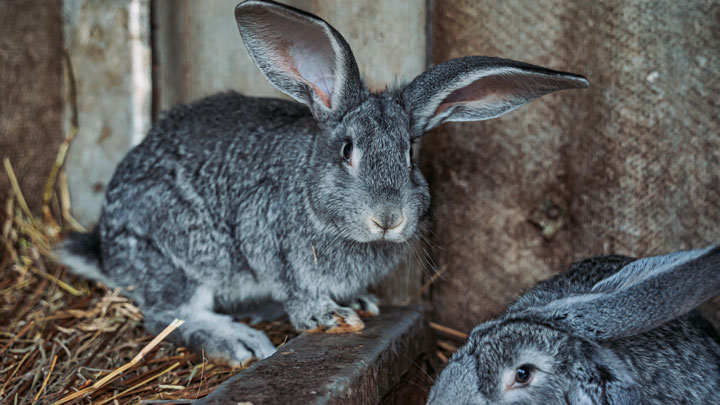
Should a rabbit have a litter?
It’s a common myth that pet rabbits need to have a litter before they’re spayed but that’s simply not true. In fact, it’s much better for their health to have them neutered early on, unless you’re planning to breed. Spaying your rabbit at the right age can greatly reduce the risk of uterine and ovarian cancers, helping them live a healthier life - without the stress of breeding or potential complications.
Cost of rabbit neutering
How much it costs to get your rabbit neutered will depend on whether they’re male or female and any other healthcare needs they may have. Typically, neutering a female is more expensive because it’s a more complex and invasive procedure. Your veterinary practice will let you know all the costs and the different ways you can pay.
The neutering procedure
Neutering is carried out under general anaesthetic whether it’s spaying a female or castrating a male. Your rabbit will come in for a pre-surgery check to make sure they’re fit and healthy.
Your pet is in good hands and will be monitored throughout. For male rabbits the vet will make a small incision in the scrotum through which to remove the testicles. For female rabbits they’ll make an incision in the abdomen and take out the uterus and ovaries.
Once your rabbit has recovered from the anaesthetic and provided there are no complications, they’ll be able to go home the same day.
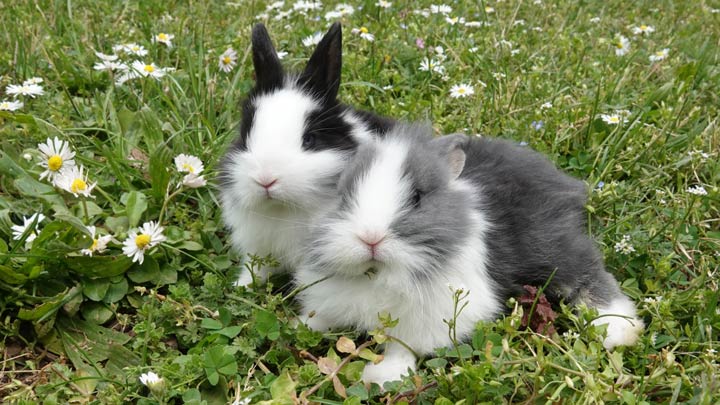
Post-operative care
Your vet will talk you through how to care for your rabbit after surgery. It’s important to follow their instructions to give them the best chance of a speedy recovery.
It’s normal for your rabbit to be a little groggy because of the anaesthetic but it’s important to get them eating and drinking quickly to keep their digestive system moving.
We know it’s tough with rabbits but try and limit their activity for the first few days and keep an eye on the incision site for signs of infection (redness and swelling). Your vet may suggest a protective covering or cone to stop them licking or chewing it. They may also provide pain relief for the first few days.
It’s a good idea to keep a close watch on your rabbit. If you’re worried about anything your vet will be able to help.


